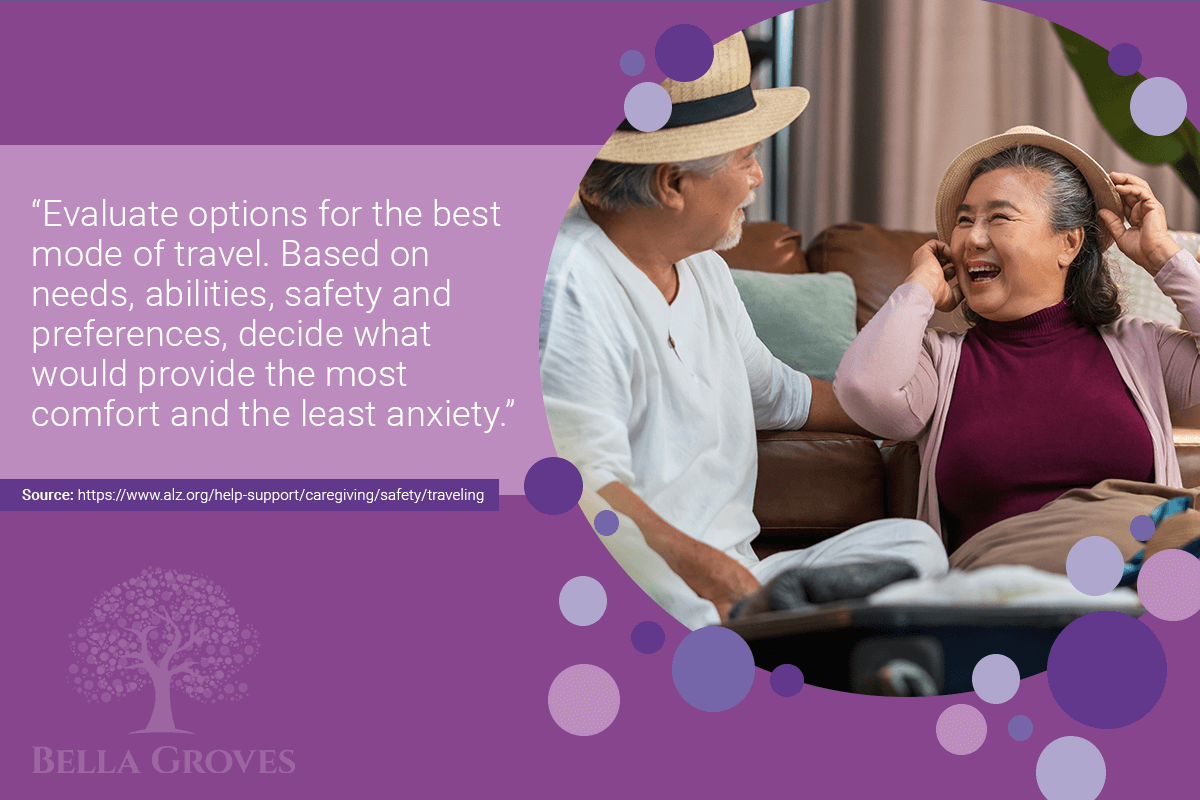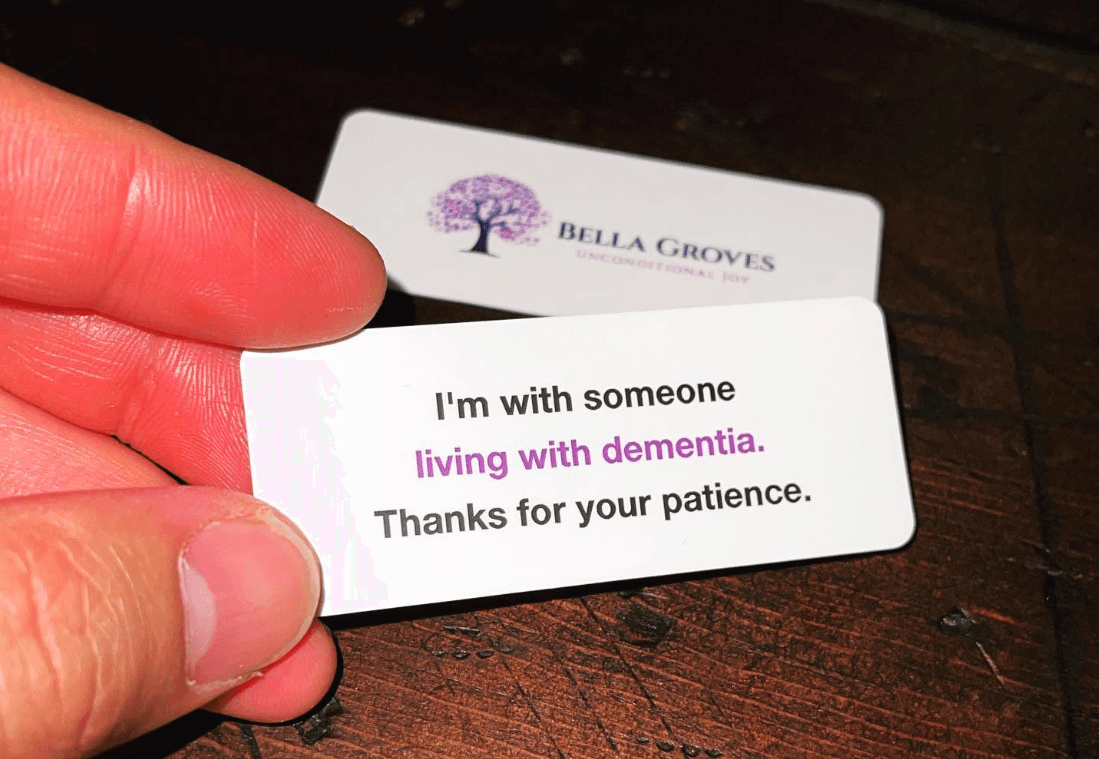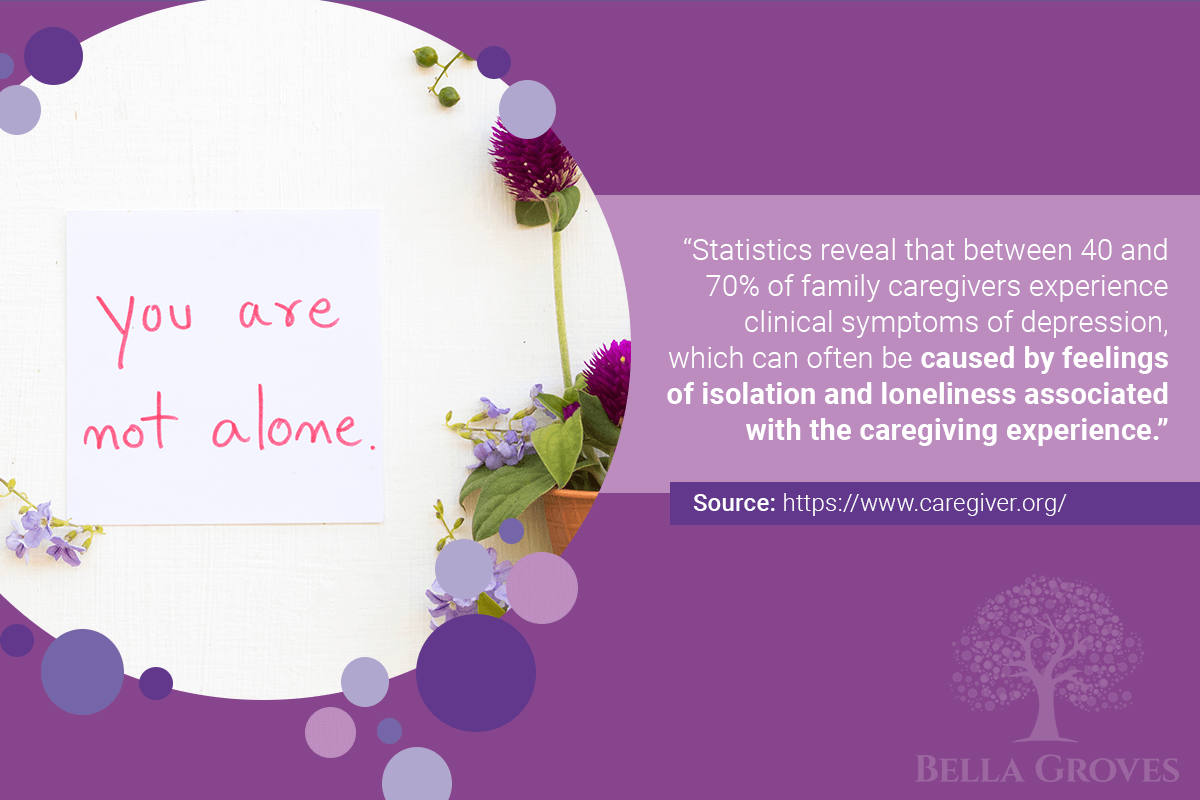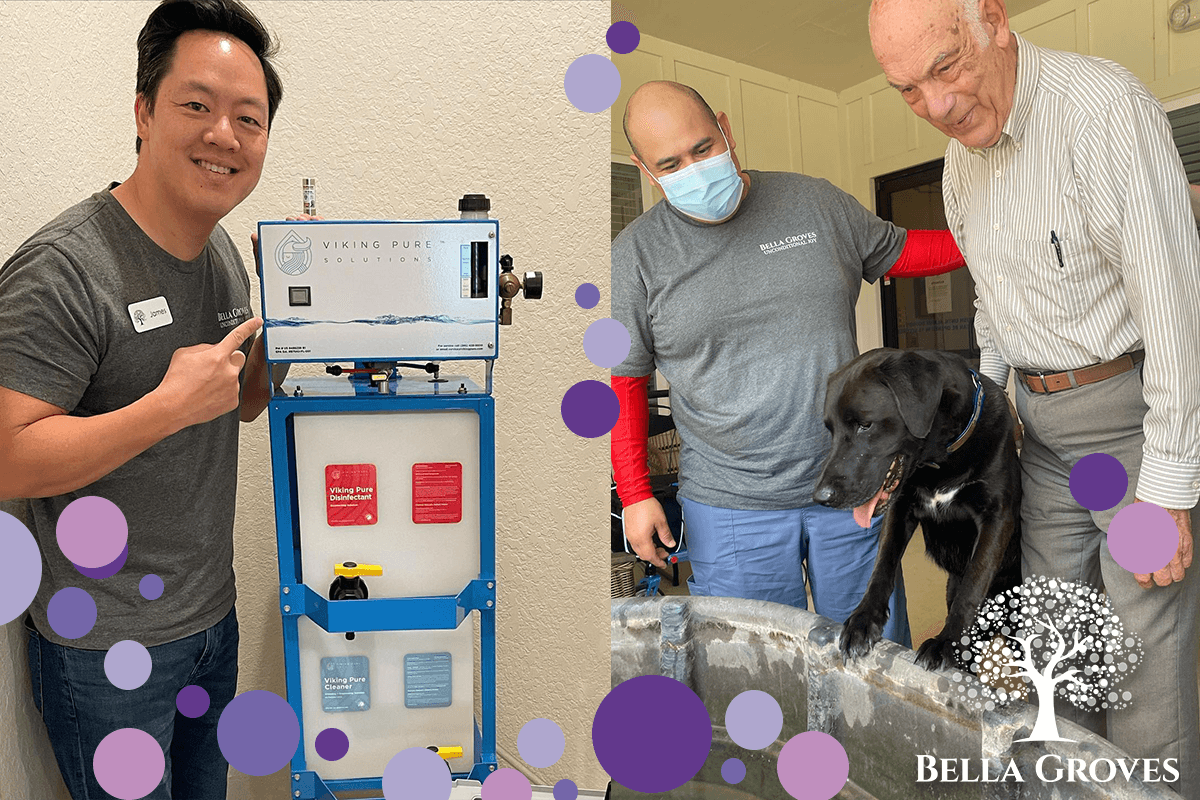
Tips for Planning a Trip with a Person Living with Dementia
If someone you love is living with dementia, planning a trip may be at the bottom of your to-do list. When you factor in the nuances of dementia care, routines, and safety, traveling might seem like a daunting challenge. However, life doesn’t (and shouldn’t!) stop due to a dementia diagnosis.
While your parent or loved one may be living with dementia, they may need or want to travel to see family, attend an important event, get specialized care, etc. When it comes to dementia, for everyday life to continue, adjustments need to be implemented to provide support, safety, and comfort – and travel is no different.
At Bella Groves, we’re dedicated to providing resources to ensure those impacted by dementia grow and experience unconditional joy. Below, our team shares dementia care preparations and tips to help individuals and families travel safely and comfortably.
Benefits of Travel Therapy for Dementia
Dementia is a neurological condition that alters memory, cognitive function, and decision-making. As it progresses, the brain begins to have difficulty processing sight, sound, touch, taste, and smell, which can lead to confusion and disorientation in new places.
However, studies have shown that “travel therapy,” when used in dementia care, can provide mental and physical health benefits. Just like music therapy, exercise, and sensory stimulation can improve cognitive function and memory, travel therapy can positively influence a person living with dementia.
One particular study focused on the links between tourism, defined as “visiting places outside of one’s everyday environment for no longer than a full year,” and four specific components:
- Affective Experience: feelings, emotions, and mood
- Cognitive Experience: thoughts and memories
- Conative Experience: behavior
- Sensorial Experience: the senses
The conclusion found that travel has a positive impact on the well-being and quality of life of those living with dementia by:
- Stimulating thoughts and knowledge of new cultures
- Increasing social interaction
- Movement and exercise
- Stimulating memories of past experiences
Tip 1: Plan & Prepare
Before your trip, there are many preparations to put in place to make this journey safer and easier to navigate for you and your loved one. If you need to travel by plane or train, search for routes with limited layovers or connections. The process of switching flights can include sudden or last-minute changes that could cause disorientation and confusion.
When possible, plan your schedule around your loved one’s usual routine. For instance, if your loved one experiences sundowning and agitation or anxiety during the evenings, choose a time in the morning to begin traveling.
Contact transportation agencies and security teams to better understand any set protocols to help you set realistic expectations for your travel day. This also provides an opportunity to learn about any mobility or dementia care accommodations they could make for you and your loved one.
In addition, consider carrying small, discreet cards that say something like “I am traveling with someone living with dementia. Thank you for your help and patience.” that can be easily handed to a transportation agent who may be curious or concerned about your loved one’s behavior. While the agent may not fully understand the nuances of dementia, they will better understand your situation and hopefully, it encourages them to learn more so they are better prepared in the future to assist and support other travelers impacted by dementia.

Tip 2: Consider Various Scenarios
If the person living with dementia is traveling for more than four hours, consider bringing another family member on the trip. Having extra assistance can support you, as well as offer your loved one comfort and familiarity.
When it comes to accommodations, research options that best meet your loved one’s needs. For example, ask for a handicap-accessible room as they have a clear access path, extra-wide hall and bathroom doors, and bathroom grab bars.
An identification bracelet or another form of ID may also be beneficial in the case of an emergency or separation. In addition, be sure to come equipped with a carry-on bag with the necessary items, such as:
- Contact information, including healthcare providers and emergency contacts
- Medications
- Extra clothing and/or incontinence products
- Water, snacks, etc.
Tip 3: Set Realistic Expectations
As a care partner, you know your loved one best. If you feel a trip would be too overwhelming or cause them more anxiety than joy, it’s okay to say no and stay home.
Living with dementia does not mean it’s necessary to stop participating in meaningful activities such as travel. However, it does require planning to ensure everyone’s safety, comfort, and enjoyment.
Bella Groves is here to help you on your dementia care journey from day one. We provide varying levels of services and support so that families have the tools and confidence to work through the challenging times and create more moments of unconditional joy.


